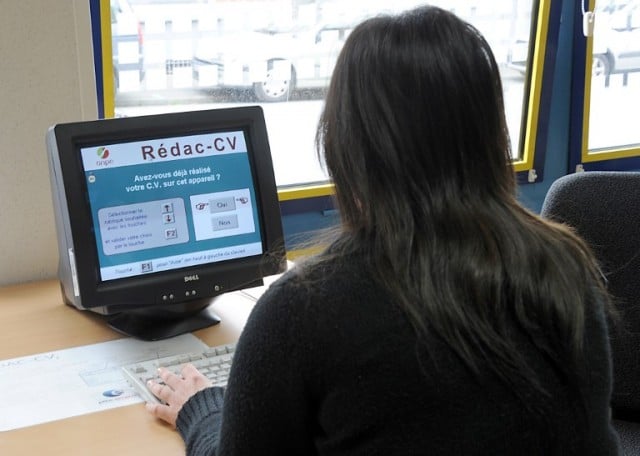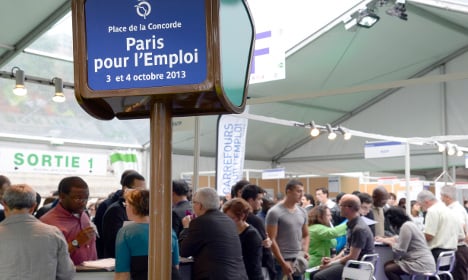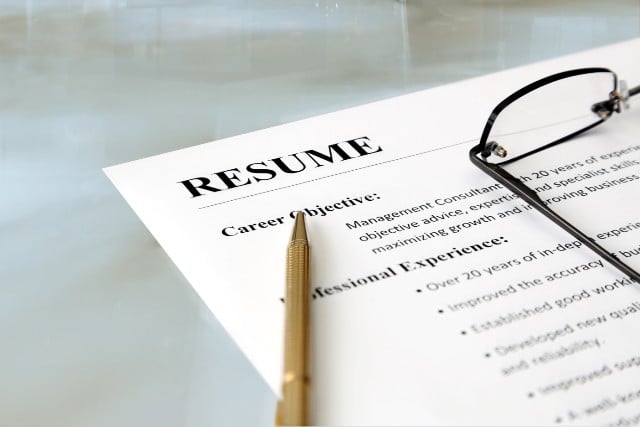Translating your CV or résumé into French is one of the hurdles to overcome when you begin your job search in France. To help you, The Local has recruited Samia Zeriahene, a Senior Consultant at recruitment agency Euro London Appointments in Paris to highlight some important points to remember when putting together your French resumé.
1. You really need one!
Many people come to France and hope their English CV will be enough to get them a job. While this might be true in an Irish/English pub or at an English teaching academy, it will not be the case for most companies, even if the HR department is fully bilingual.
“Whether you need a CV in French really depends on the position you apply for,” Zeriahene says.
“If the advert is in English then send your English CV, but if the advert is in French then obviously you need to send a French résumé. I always ask people for both, so it’s definitely better to have a French CV.”
2. Don't get too personal
Remember the French like to keep their personal and their professional lives separate. That goes for small talk in the lift before work and also when it comes to your CV.
“In the personal information section at the top of the résumé one person even put the names of her children, which is obviously quite weird for us in France,” Zeriahene says. “It’s best just to keep it simple by putting your name, address, phone number etc. You don’t need to put your age or marital status.

3. Don't hide where you come from
In the desperate hope of increasing their chances of getting a job it may be tempting for some foreign nationals from outside the EU to avoid making their nationality clear on their CV, especially if they don’t have working papers. Don’t do it, says Zeriahene.
“It's not good to hide it and it’s not necessary. If they have American nationality or they are from somewhere else outside EU it is preferable to write that the candidate has a work permit.”
4. Be photogenic
The photo question is one that comes up all the time when it comes to writing a CV in a foreign country. In France it can work to your advantage or disadvantage so just make sure you chose an appropriate one.
“It is not compulsory to put a picture but it can be a good idea for presenting a professional image of yourself,” Zeriahene says.
“If someone is applying for a sales position then it can be a good if they have a picture of themselves wearing a suit. Some people use pictures they have taken with their friends or in the street and then just cut it down, which is obviously not a good idea at all. If you are going to do it then it’s good to show you have taken the time to take a special picture for your CV.”
CLICK HERE FOR TEN TIPS ON FINDING WORK IN FRANCE

5. All in order
The job section is the most crucial part of the CV so it’s important to get it in order, which means putting the most recent job first with dates and then bullet points for the main responsibilities you had in each role. If you have had plenty of interesting or important jobs then feel free to express yourself, concisely however.
“Some candidates think French CVs should only be on one page but if they have an interesting profile then it’s good to extend it to two pages,” Zeriahene says.
“It’s important to be simple so we can see the evolution of a person’s career. Sometimes we get CVs from foreign people and it’s just a block of text so it’s difficult to read.” If you are putting companies and job titles that a potential French employer will not understand or have heard , Zeriahene says it's important to spell out the sector in which you have worked.
6. Don’t lie
There’s always the temptation to be slightly more liberal with the truth when it comes to a writing a CV in a new country. “They’ll never find out from Microsoft that I was only there for a month,” we say to ourselves, or “They’ll have never heard of Burger King in France so it doesn’t matter.” Well it just might come back to bite you, Zeriahene says.
“Some candidates will try and make up the dates to reduce a gap in employment in their CV, but it is important not to lie about dates as we do reference checks on previous employers. I will often contact companies in Brazil or Asia to check a candidate’s previous employment. It will not be taken kindly by the client if the candidate has lied. If you have been out of work for a while then explain why and be honest.”
7. Don't hide your language skills
If you can speak them, then flaunt them on your CV. “It’s important to mention language skills high up on your CV,” Zeriahene says.
“If someone is bilingual it’s important we see that at the top. It’s good to point out which language is your mother tongue and also your levels in other languages, whether it's intermediate or advanced etc. If you are currently studying a French course put that in too, because it shows that you are trying to improve your ability.”
CLICK HERE TO FIND THE LATEST JOB VACANCIES IN FRANCE

8. Education, Education, Education
Whereas in Anglo-speaking countries, someone’s educational achievements are now often joked about, in France they are still taken very seriously, so don’t leave out any of your qualifications.
“Companies in France look in detail at the studies the candidates have undertaken, more than in other countries, perhaps,” Zeriahene says.
“If a candidate has studied in France then companies will certainly look at this. And if you have studied French courses then make sure you mention the school, the course and the result etc.” Translating degree or diploma results can be hazardous as the French have a very different marking system, for example a British 2:1 is the equivalent of a ‘mention bien’ in French. Zeriahene advises putting grades in both English and French if possible.
9. Translation troubles
Finding the equivalent degree results is not the only translation problem that may arise. Many job titles or job jargon may also be difficult to transfer into French. But it's worth spending the time on trying to find the right word.
“Candidates should try to take the time to find a translation for everything,” Zeriahene advises.
“Obviously in French we use a lot of the same words like Marketing and Communication so this is not always necessary. But if in doubt or if it’s difficult to translate you can just put the English word. You can always look at the text of the job advert as the words might be in there.”
10. Hobbies are good.
The French may be averse to personal information but they are not entirely uninterested in what you get up to at the weekend, especially if it’s “extra-curricular”. “It’s good to show you have something outside your working life,” Zeriahene says.
“You never know, it might be the same hobby or interest as the person interviewing you. If you are the only candidate who likes to surf then you will stand out, especially if your interviewer has just taken it up.”
Search thousands of English-language jobs in France at The Local Jobs
A version of this article was published in 2016.



 Please whitelist us to continue reading.
Please whitelist us to continue reading.
Member comments